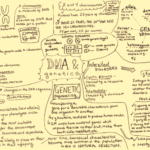Exams and how to prepare
English Language is compulsory at GCSE level and is fully examined with two papers (except I-GCSE or WJEC as these also include NEA Non Examined Assessments).
Most boards use a 5-question paper for both papers. They are graded using the numerical 1 to 9 grading system where a 9 is the equivalent of a top A* and a grade 4 is a pass (equivalent to a C grade).
University applicants are required to have a grade 6 or above whereas other candidates must achieve a grade 4 or retake this subject (colleges and sixth forms all have provision for this).
Preparing for the Exam
The best way to prepare for this exam is to hone your skills as it is a paper with unseen texts therefore you will need to have developed key skills rather than work through and remember a lot of content revision. The key to this exam is knowing what skill to apply for each question and practice of these.
Read analytically
Firstly, you will need to be able to read analytically and use both structural and language analysis. However, each question is worded to elicit a specific response.
You will be asked to write a language analysis where you will use inference and connotation of given methods. For example, “when books were golden”- a metaphor suggesting that books were precious.
You will also need to compare quotes, evaluate ideas and give structural analysis, such as- “books are now obsolete” juxtaposes the earlier quote. These reading skills are all needed for questions 1 to 4 on both English Language Paper 1 and Paper 2.
Write clearly and accurately
Secondly, you will need to be able to write clearly, using accurate punctuation, grammar and spelling. You will need to develop writing stamina so that you can write at least two pages in two styles of writing for both exams (mostly creative and argument styles for all boards and worth 50% of each paper).
Creative Writing Task
On each paper there will be an extended question with a creative writing task – question 5 on one paper and a writing to opine/argue on the other paper’s question 5. For the creative writing task, you will be expected to use narrative techniques such as metaphor, simile and dialogue. Whereas for the other paper you will need to utilise rhetorical devices, including rhetorical questions, facts and anecdotes.
Feeding into A Level Language
Both papers feed into A Level Language which requires an advanced understanding of grammar and rhetoric. In addition, the reading skills used to analyse language and structure, to compare and evaluate also form part of the questions on the A Level Language exam. This is also comprised of two exams, but also includes NEA, where students must undergo their own investigations and research into an element of language. This study is part of new learning where students study how and why our language evolved and morphed into the varieties of English spoken globally.
What to do if you feel you are struggling with subject/ keeping up
If help is sought from a teacher or a tutor it is best to firstly identify what you are finding difficult, such as not knowing how to approach a particular question or any other clear reason for being unable to keep up. There are measures that can be taken to address many of the issues students experience, such as support for timing issues (a common problem) or individual questions, such as learning methods of approach which suit your style of learning.
It is important to seek help as soon as it is needed as early intervention is the most effective. If you leave it until weeks before the exam, it might be too late. Ideally, the November mocks in Year 11 should mirror true progress and show if you are having difficulty.
Useful information to study in each of the different years
- Years 9-13 benefit from reading of any kind, fiction or non-fiction, is most beneficial to improving reading proficiency and accuracy on this and any other exam, as it gives you the advantage of speed and understanding as well as mitigation for error.
- Years 10 to 11 might also benefit from keeping up with current affairs and developing their wider general knowledge. This knowledge is useful for understanding context in reading questions and to reference in writing.
- Years 12-13– to develop better subject knowledge, it is useful to look up the latest research on language and save articles on controversial topics or uses of language.
Subject specific
Building your vocabulary as well as key words from the wider world context such as Draconian, Pragmatism, Capitalism, Socialism, Irony, Class, Economy, Misogyny, Parity, Injustice, Penury, Autonomy and many more. These will also support the study of A Level Language.
Tips & techniques for exams / study
Youtube, TikTok and so on feature many reputable teachers addressing specific questions and skills to help study. Most of these are free, but there are additional subscription packages offered as an option too.
Developing your vocabulary via apps such as Bedrock and reading texts with 15+ reading age or buying a SPAG skills book (CPG and other companies produce a range of these) to improve will be of benefit.
Going through a Walking Talking Mock for your exam board is also available online – mostly via PowerPoints and these help with method. However, practising the questions and getting feedback will support improvement the most.
EPQs– You can expand your NEA for English Language to develop it into an EPQ. Your advanced skills will also enable you to produce the EPQ more skilfully and efficiently.
UCAS applications- as students are no longer required to produce a personal statement, universities will only look at your GCSE and A level grades for English. A Grade 6 is needed in English Language GCSE, regardless of the course applied for.








 See More Genuine Reviews
See More Genuine Reviews